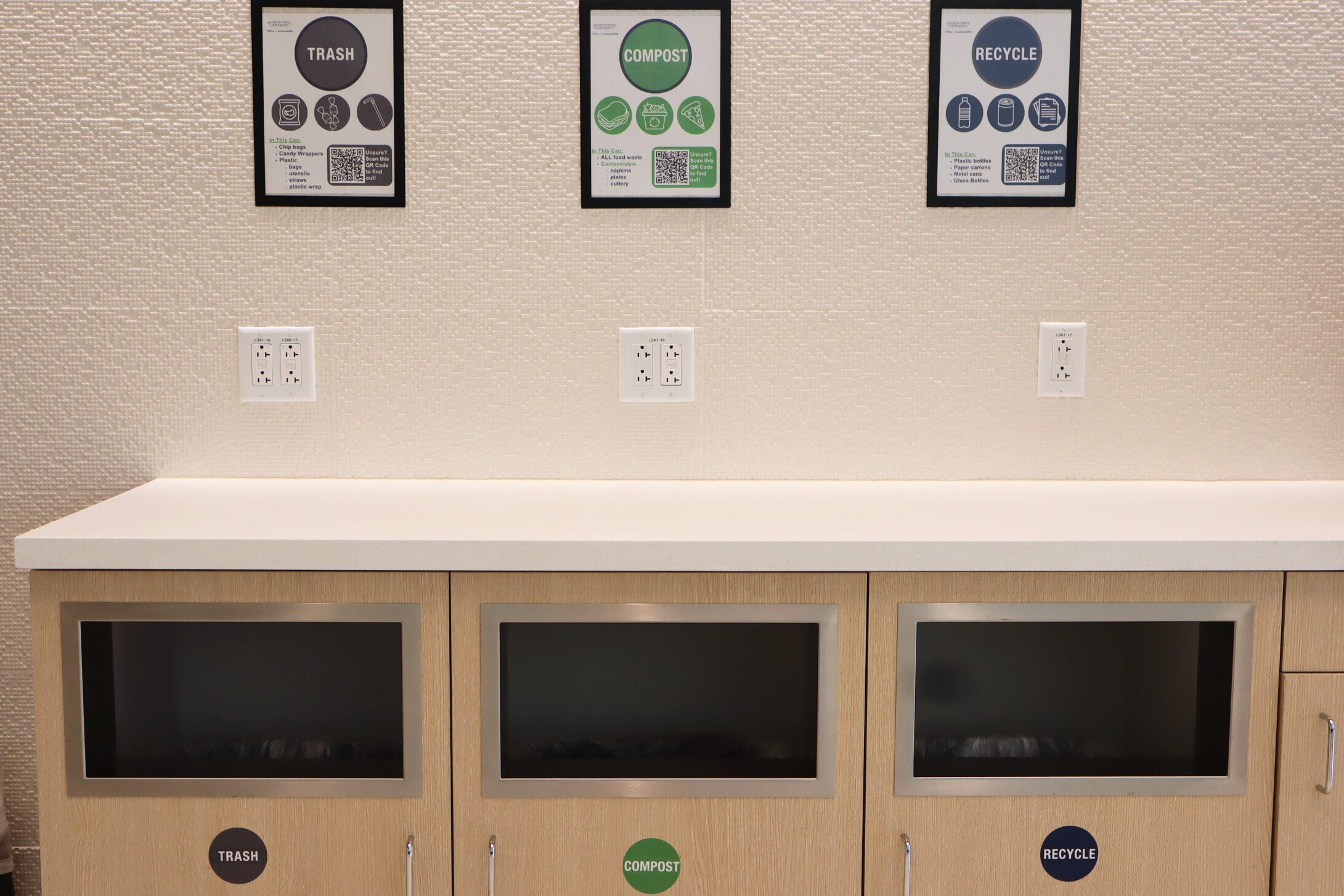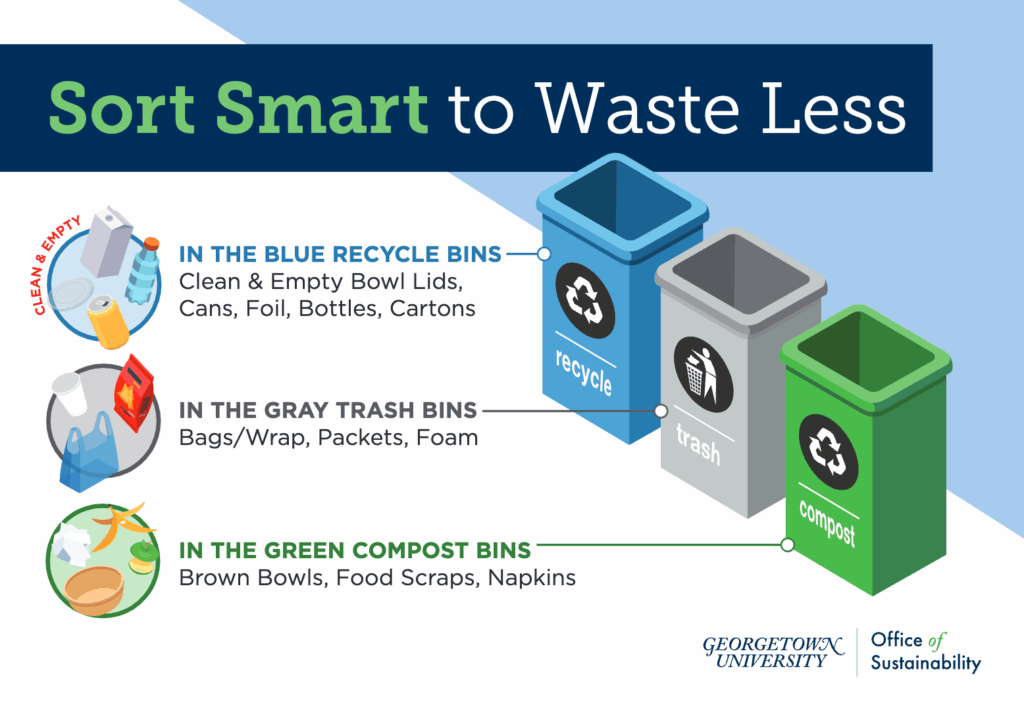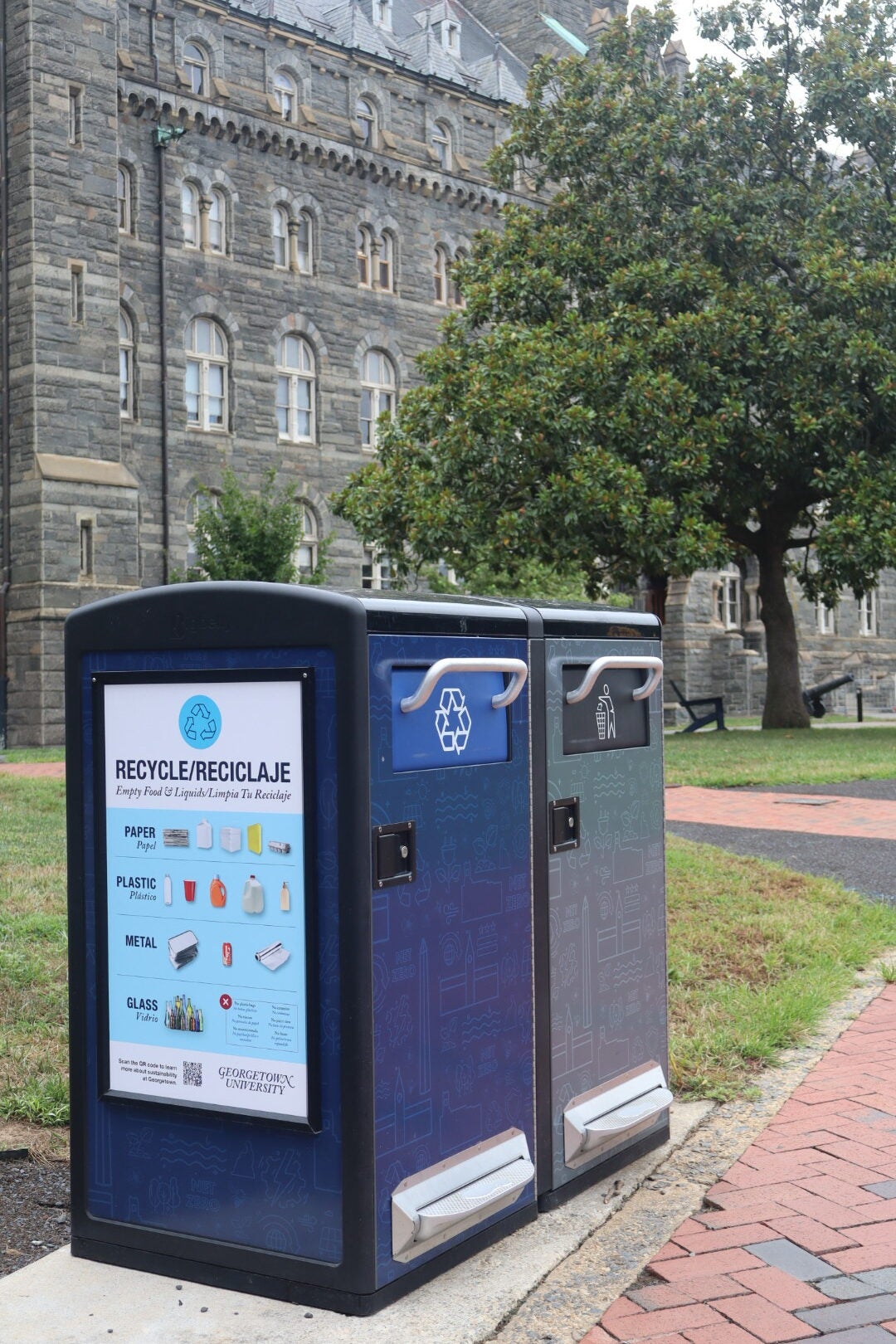Georgetown Advances Waste Management Practices Across Campuses
Have you ever experienced the confusion of walking up to a waste bin on campus and not knowing which bin your items should be placed in? Over the summer, partners in university operations have worked to improve access and educational signage for waste stations at the Hilltop and Capitol Campuses. With the goal of increasing proper waste management practices, these enhancements will contribute to the progress towards the university’s sustainability strategic priorities.
Did You Know?
Georgetown University offers recycling, composting, and trash collection services across the Hilltop and Capitol Campuses. In the 24-25 academic year, battery recycling stations were installed on the Hilltop and Capitol Campuses to increase the availability of battery recycling efforts across Georgetown. Similarly, plastic film recycling was implemented in university retail locations, resulting in 471 pounds of plastic film being recycled in the 6-month pilot program.
Georgetown is committed to sustainable waste management. With your help, we can reduce the amount of waste we send to the landfill. Students, faculty, staff, and visitors can recycle and compost much of your personal and office waste generated on campus.
Visit Waste Management at Georgetown to learn more about how and where to dispose of your waste.
Composting Expands at Georgetown
The university first introduced composting as a pilot in the 2021-2022 school year by student groups interested in bringing the effort to campus. In 2023, composting was formally implemented at Leo’s Dining Hall and Epicurean on the Hilltop Campus, collecting organic food waste from both the front-of-house and back-of-house areas.
In total, in 2024, 602 tons of total compostable waste (e.g. food waste and yard waste) was collected at Georgetown – this equates to 602 tons, or 16.2% of our total waste collected. Of that 602 tons, 431.79 tons of organic food waste was collected and composted. This amount of compost would create 364,776 meals, enough to feed a sold-out Washington Commander’s stadium more than five times.
This fall, Hoyas will not only be able to find composting in the dining halls on the Hilltop, but on our bustling Capitol Campus at 125 E Street NW and at 111 Mass Ave NW.

3rd Floor Commons at the McCourt School of Public Policy at the Capitol Campus
Leo’s Waste Study
In 2024, the university partnered with Foodservice Packaging Institute (FPI), to conduct a comprehensive waste study at Leo’s Dining Hall, yielding data to help the university better understand the community’s waste management practices to determine practical solutions to implement across the Hilltop.
While this effort allowed Georgetown to better understand the ways in which the community disposes of waste, following the study’s findings, the university and FPI aimed to implement practical opportunities to improve the university’s waste management practices.
These included improved waste station signage, educational signage placed on dining tables, and additional training resources for Georgetown University dining staff.

Napkin holder/screen signage that will be on display in Leo’s Dining Hall & Epicurean
“Green” Your Campus Events
As university-sponsored and student organization-hosted events ramp up for the semester, please consult the sustainable events guide for information on event setup, waste management, recommended supplies, and catering. Consider incorporating recycling and compost into your event plan by requesting bins in your GEMS request.
The Office of Sustainability is dedicated to continuing its efforts to improve the Georgetown community’s environmental impact, leading to a more sustainable future for generations of Hoyas to come.
